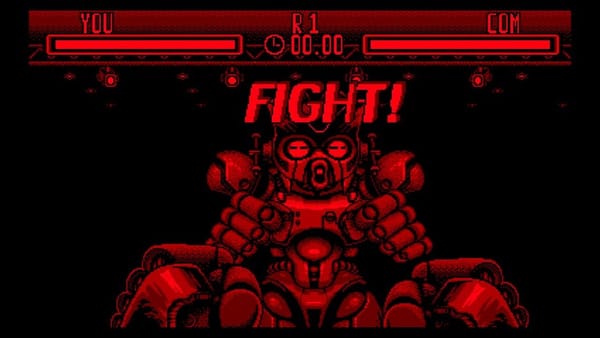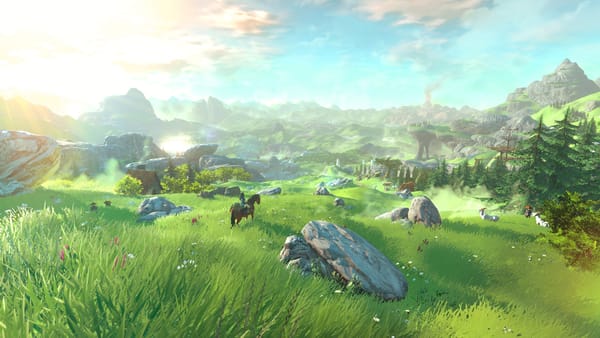#252: Legacy thinking
Reflections on yet another brutal week for the game industry.

I suppose we’d better write a newsletter. I worry there’s not going to be a game industry left to write about if we put it off any longer.
I do not, to be clear, subscribe to the school of thought that we are heading for another ‘80s-style crash, though the events of the last few days have certainly strengthened the argument of the game industry’s increasingly noisy prophets of doom. Even in the context of 2024’s layoff onslaught — not even two months in, we are already three-quarters of the way to 2023’s estimated total — this has been a brutal week indeed. There have been so many sad tales that not even one of Hit Points’ famously overlong paragraphs can contain them. I am afraid we must go all Axios for a moment, and break out the bullet points.
- Supermassive Games, UK developer of slasher adventures Until Dawn and The Quarry, has put almost half its 300ish staff at risk of redundancy, and plans to eventually eliminate 90 jobs;
- Die Gute Fabrik, the Danish indie behind Mutazione and Saltsea Chronicles, has ceased operations due to funding struggles;
- PlayStation is cutting 900 jobs, around 8% of its global workforce, laying off staff at Naughty Dog, Insomniac, Firesprite and Guerrilla Cambridge, cancelling a number of in-development projects, and shutting the 22-year-old London Studio entirely;
- Deck Nine, developer of Life Is Strange: True Colors, is laying off 20% of its workforce because of “the game industry’s worsening market conditions”;
- EA is laying off 670 people, around 5% of its global staff, has shuttered Seattle-area Battlefield studio Ridgeline Games, and is “moving away from development of future licensed IP that we do not believe will be successful in our changing industry,” which apparently means the cancellation of Respawn Entertainment’s singleplayer Star Wars FPS.
It is Thursday.
We all understand, of course, that it is rough out there right now. And I trust the estimable Hit Points readership has more than enough intelligence to understand the thinking behind these miserable moves. You may even, particularly in the context of Supermassive, Die Gute Fabrik and Deck Nine, have a degree of sympathy for the decision makers. These are not public companies; all are therefore unbeholden to (public) investor pressure, and presumably have had their hands forced by situations beyond their control.
For EA and Sony, however, sympathy is in vanishingly short supply, though we can certainly understand how they arrived at their respective decisions given that they are run, respectively, by Andrew Wilson (infamous bellend) and Jim Ryan (maybe, in hindsight, incompetent all along). Of course these guys were going to do another round of layoffs before fiscal year-end; it is just the way they are built. This is the worst sort of Valley mindset, the ‘everyone else is doing it’ attitude that puts the desires of investors far, far above the financial safety or wellbeing of staff, or the desire to run a good company. The fact that we are hearing a version of this story every few hours at the moment does not make it any easier to hear, or indeed to tell.
Both companies have blamed not only economic factors for the layoffs, but a wider change in consumer behaviour and taste. “Fans are increasingly engaging with the largest IP,” Wilson, that gleaming automaton, bleeped in his announcement memo, “and looking to us for broader experiences where they can play, watch, create content, and forge deeper connections.” PlayStation Studios chief Hermen Hulst, meanwhile, says the game industry “has experienced continuing and fundamental change which affects how we all create, and play, games.” And, look, fair enough. This is true. But also: if these things are true, why have Sony and EA been making the choices they’ve been making? And why are the people that made those decisions immune to the consequences of their obvious mistakes?
Wilson talks about players “engaging with the largest IP” mere months after he willingly abandoned the FIFA licence because he felt football’s governing body was asking for too much money to renew it. By cancelling Respawn’s Star Wars shooter he is binning off a game based on one of the largest IPs in the world, being made by arguably his company’s one great studio (and certainly the only one to do anything of note with the Star Wars licence in the decade EA has had the rights to it). He says the layoffs will “drive creativity [and] accelerate innovation”, and, well, hmm. Perhaps, in some better parallel universe, that would be a fair way to describe EA. In our world, Wilson leads a company propped up by microtransaction spend in Apex Legends and a revolving door of annual sports games, and very little else. Hit Points has not played a Madden or NHL since the Mega Drive days, but one assumes they operate much like FIFA, in which EA passes off reversing last year’s gameplay changes as this year's innovation, updates the rosters then spends the next 11 months counting its Ultimate Team revenue. Innovation? Come off it.
Then we have Sony, and in particular, Jim Ryan. As he runs down the clock to his retirement at the end of next month, one imagines Ryan has begun to contemplate his legacy. He has been part of the furniture at PlayStation since day dot, steadily climbing the ranks before finally assuming the biggest chair in 2019 — at which point his rags-to-riches tale ends, as these things often do, in a third act of unmitigated disaster. It’s bullet time again, I’m afraid; the paragraphs are powerless. Herewith the finest moments of PlayStation's Jim Ryan era.
- Moved PlayStation HQ, and the business’ balance of power, from Tokyo to the US — just in time for western economies to collapse, and the western game industry to enter a protracted existential crisis;
- Closed the beloved, globally renowned Japan Studio, despite growing signs of Japan’s game industry being back to its best;
- Took a studio group renowned for lavish, cinematic, singleplayer adventures and forcibly pivoted them to live-service games, despite the space being dominated by powerful incumbents, and its conventions increasingly resented by players;
- Spent $3.6bn on Bungie, a company with only one, ageing, steadily declining game bringing in revenue;
- Raised hardware prices mid-generation in a cost-of-living crisis;
- Launched a VR headset at a higher price than the console required to use it, then immediately stopped making games for it;
- Oversaw layoffs at (deep breath) Bungie, Insomniac, Naughty Dog, Media Molecule, Guerrilla Cambridge, Firesprite, PlayStation Visual Arts and some others I’ve probably missed; cancelled at least two live-service-y things; and closed London Studio entirely.
Heavens above. Hit Points is not one for conspiracy theories, but this is some double-agent shit. This is — and I do not say this lightly — sub-Phil Harrison behaviour. As I said to paid subs last week (in an edition that is now also available to free readers) Ryan and Sony have been blessed by Microsoft’s eagerness to show us its ass over the course of this generation; it has given the PlayStation maker some much-needed cover. It, too, has been having an absolute stinker, and Ryan has been at the root of much of it, to the point that I am no longer convinced he is leaving Sony of his own volition. Perhaps I am clutching at straws, such is my desperation to see the people at the top paying the price for once, but fine. Quite frankly, in this most miserable of weeks, I will grasp at whatever comfort I can find.
Sheesh, there we go. Paid subs, I’ll see you tomorrow, when we shall put this misery out of mind for a few moments while I shout at you all about Balatro — a game I am enjoying tremendously, but one about which I also have some complicated and quite uncomfortable thoughts. If the rest of you would like to join us for just £4 a month, or the equivalent in €/$, kindly click the below button. Cheerio!





